Symptoms of PANDAS include:
- Acute onset (may be absent if onset was a long time ago)
- Obsessive compulsive behavior (often absent in patients with Down syndrome)
- Generalized anxiety
- Aggression, irritability, emotional lability
- Hyperactivity, restlessness
- Loss of speech (especially in Down syndrome)
- Hypersensitive to light and sound
- Regression in potty training
- Loss of academic abilities
- Restrictive food intake
- Overall developmental regression
- Change in fine motor skills or handwriting
- Gut health
- Removal of initial antigen/infection causing immune reaction
- Removal of co-infections
- Removal of antigenic foods
- Methylation
- Sulfation
- Nutrient deficiencies
- Reduce inflammation
- Heavy metals
(name has been changed)
Sally is an 11 year old female who presented for a follow up appointment via telemedicine in September of 2017 after having been seen in November of 2016 for chronic ear infections. Sally happens to have Down syndrome, has a G-tube for previous issues with oral feeding that is now only used for medication and supplements and has limited verbal skills. The mother reported in Nov 2016 that she had an ear infection that had not fully cleared for 6 months despite the use of Amoxicillin by her local pediatrician. Her symptoms included signs that she was in pain as covering her ears and pointing to her head. The mother also reported an increase in anxiety, sadness and sleeplessness. Her ear fluid was finally cultured by her local pediatrician which indicated staph as the source of the infection. The pediatrician was "not worried about that", according to the mother. Sally had also recently been experiencing urinary incontinence despite having been potty trained many years prior.
I recommended xylitol-saline nasal spray to help treat the staph and potential for biofilm, in addition to some diet recommendations and other basic naturopathic support for ear infections. We reviewed her organic acid test results during this appointment as well that did not indicate any significant nutrient deficiencies, mitochondrial dysfunction or gastrointestinal issues. I recommended she follow up in two months with results from labs I recommended that included anti-DNase antibodies and anti-streptolysin O antibodies (ASO), as I knew that PANDAS needed to be ruled out. At the time of this appointment I was just beginning to learn about PANDAS and knew enough at the time to simply check for it.
Ten months later the mother made a follow up appointment in September of 2017 that included the results from the labs I requested. I saw that her ASO was elevated at 320 IU/mL (normal is <200 IU/mL) before the appointment. The mother broke into tears within the first few minutes of her appointment stating she had "lost" her daughter. Sally was no longer engaged, completely non-verbal, had lost all potty training skills, no longer did crafts which she previously loved to do, was aggressive and combative at times, had increased anxiety and unusual posturing when they were able to get her to have a bowel movement on the toilet. Her behavior was worsened whenever the doctors prescribed antibiotics. My chart notes include this: "was sweet and loving until 2 years ago - disappeared". They were in what many of us call "PANDAS hell".
I knew this was NOT "just Down syndrome", as many other doctors had told the mother. Something had to be done. By this time I had learned more about PANDAS and had been helping several other patients with it. The first step was to find the strep within her body in order to eliminate it. So, I recommended a GI Effects Comprehensive Profile from Genova Diagnostics. I knew this would be helpful at detecting any other abnormalities in her digestion and microbiome that might be impacting her as well. I also referred the mother to a physician who was listed on a PANDAS website and was local to her. Given that I was only seeing her through telemedicine, I wanted her to have more local support.
The results of Sally's stool analysis came back in January of 2018. Images from those results are listed below. You can click on each image to see a larger version of it.
The mother was now in great despair and felt helpless. She messaged me and I recommended she make an appointment so we could discuss her options. I was shocked to hear her story. Although I shouldn't have been since it is a story I've heard from many other patients. This was just the most egregious example of diagnostic overshadowing and medical neglect I had heard.
We had that appointment in March of 2018. We discussed treatment options for all of her gastrointestinal infections. We chose herbal formulas as they have the advantage over pharmaceuticals in situations where multiple infections exist. Their antimicrobial properties can be effective against yeast, parasites and bacteria. In many cases they are more effective than pharmaceutical alternatives. Here is a portion of the exact plan I wrote in her chart:
Pumpkin seed oil treatment
- Pumpkin seed oil - 1 Tbsp first thing in the morning before breakfast. 2 hours later give another 1 Tbsp. Another 2 hours later give castor oil
- Castor oil - 1 Tbsp
Follow with:
- Black walnut/Wormwood - 1 mL 2-3 times per day for 10 days only
Use for 2 months following pumpkin seed oil treatment:
- Biocidin - 7 drops twice a day, empty stomach is best (before breakfast and before dinner), start slowly with 1 drop on the first day and increase by 1 drop each day after that
- LactoPrime - 1 capsule at bedtime
- S. Boulardii - 2 capsules twice a day (at bedtime and during the day between Biocidin doses if possible)
Pumpkin seed oil contains a substance called cucurbitin that treats worms and other parasites by paralyzing them so they can be expelled from your body. (Grzybek 2016) Black walnut and wormwood are herbs that specifically treat parasites but also have anti-fungal properties as well.
I signed her chart and moved on to helping other patients. I had to wait with much anticipation for her follow up appointment to hear how she responded to this plan. The results from her follow up stool analysis finally came in on August 13, 2018 and are below.
Followed parasite protocol - no die off
Started protocol in May saw improvements in 3 weeks
Able to get hair cut and brushed with no fussing
Able to brush teeth
Can have toenails and fingernails clipped
Starting to draw again - big circles
Used to only sit on bottom to go down stairs - now walks down the stairs
Closes car door without reminding
Wants to take care of self more
More curious about what's in the kitchen
Still resistant but a lot less aggressive
Understands a lot more
I recommended that the mother do additional herbal treatments to ensure that any residual parasites or infection were gone. Given that Sally has a G-tube the mother is able to easily use any antimicrobial substances despite many of them being very unpalatable when taken orally. I recommended she use oregano oil (not essential oil of oregano) for a couple of months, continue probiotics and eventually add in black cumin seed oil. Black cumin seed oil, aka Nigella sativa, has many health benefits as reported by researchers in India, Oman and Saudi Arabia. "Extensive studies on N. sativa have been carried out by various researchers and a wide spectrum of its pharmacological actions have been explored which may include antidiabetic, anticancer, immunomodulator, analgesic, antimicrobial, anti-inflammatory, spasmolytic, bronchodilator, hepato-protective, renal protective, gastro-protective, antioxidant properties, etc." (Ahmad 2013). In addition, researchers in Poland found Nigella sativa as well as oregano to be effective against Blastocystis hominis. They stated, "aqueous extract of Nigella sativa significantly inhibits the growth of Blastocystis isolates...Similarly, supplementation with 600 mg emulsified oil of Mediterranean oregano (Origanum vulgare) daily lead to the complete disappearance of Blastocystis." (Lepczyńska 2017).
We're doing a lot more than I've written here including gallbladder and bile support (due to elevated fecal fats), immune support, diet changes, etc. What I've written here is the main aspect of her plan that most helped her. We are far from done with her healing journey but she's out of the woods from her experience with PANDAS. The next steps are to help optimize her health to prevent this from happening again.
"Infectious agents, including bacteria, viruses, fungi, and parasites, are also known to trigger autoimmune disorders through several mechanisms: molecular mimicry, epitope spreading, standard activation, viral persistence, polyclonal activation, dysregulation of immune homeostasis, and autoinflammatory activation of innate immunity. It is important to note that an infection may not necessarily be the inducer but rather the total burden of infections from childhood on that trigger autoimmunity. Moreover, an infection can amplify an autoimmune disease by either exacerbating an ongoing disorder, including a relapse, or by leading to chronic progressive disease."
(name has been changed)
Bella is now an eight year old female patient who I had been working with for several years. I helped make recommendations to her dose of thyroid medication in addition to supplements and diet changes to optimize her health. She was overall a healthy young girl who had hypothyroidism and happened to have Down syndrome. Blood work and symptoms were our main guides and we had seen improvements in her health with every adjustment to her plan, but more was needed.
In March of 2017 the mother was able to do an organic acid test through Great Plains Laboratory so we could get an in-depth look at how to best help her. She had been prescribed several rounds of antibiotics over the years for upper respiratory infections, which increased my suspicion for a disrupted balance of bacteria and yeast within her gut. The organic acid test is something I encourage most of my patients to do. It includes markers that can detect gastrointestinal malabsorption and dysbiosis, mitochondrial dysfunction, fatty acid metabolism, vitamin deficiencies and more. Bella's test results are below.
- Significant yeast overgrowth
- Clostridia difficile (seen as elevated 4-cresol)
- Riboflavin deficiency (elevated succinic acid, 3-methylglutaric acid and glutaric acid)
- Inflammation (elevated quinolinic acid)
- Need for carnitine (elevated adipic acid)
This is a very simplified interpretation of this test. I've left out some details to keep this as straightforward as possible.
The mother and I discussed taking a more aggressive approach to treating her daughter's gut health in addition to her strict following of a healthy diet. I recommended the following plan:
Gut Treatment for 6 weeks:
- Biocidin - 3 drops twice a day on empty stomach. Can be given with thyroid medication. Start with 1 drop and increase by 1 drop per day until you reach maximum dose.
- Biofilm Defense - 1 capsule with Biocidin
- Probiotic - 1 capsule at bedtime
- The Candida Diet - do the best you can.
2 weeks after starting Biocidin or when symptoms are better:
- Carnitine - 1/4 tsp once a day
- Riboflavin - 1/2 capsule once a day
- B Complex - 1/2 capsule once a day with food
There was more to her plan than this, but these were the recommendations made in order to address specifically what the organic acid test had revealed. I recommended she repeat the organic acid test in 3-6 months and follow up with a blood draw that included strep antibodies due to a recent bout with strep throat and changes in her behavior that included emotional lability and decreased cooperation. Mom reported that she was grumpy overall. She also had a sleep study that revealed moderate sleep apnea that was likely aggravated by her enlarged tonsils. She followed up in December of 2017 with the blood draw results I had requested but was not able to repeat the organic acid test. Her original ASO level is below.
The most recent appointment with this patient I had was in July 2018. The mother had stopped all supplements before repeating the organic acid test and was continuing a whole foods, grain-free diet. Her daughter's tonsils had not yet been removed. The results of her organic acid test are below.
The labs we most often run in our patients with previously diagnosed PANDAS or suspected PANDAS are:
- Organic acid test
- Comprehensive stool analysis
- Anti-DNase antibodies
- Anti-streptolysin O antibodies
Additional testing to check for co-infections as warranted would include:
- Borrelia burgdorferi antibodies (Lyme disease)
- Epstein-Barr virus antibodies
- Mycoplasma antibodies
- Coxsackie antibodies
- Parvo 19 antibodies
- HHV-6 antibodies
- CMV antibodies
- Anti-Dopamine Receptor D1
- Anti-Dopamine Receptor D2L
- Anti-Lysoganglioside GM1
- Anti-Tubulin
The last four tests on the above list are part of the Cunningham Panel. This is the only test currently on the market that offers these. It's an expensive test, as it's not often covered by insurance, that doesn't necessarily change the mode of treatment. The root cause of autoimmunity often lies in the gut, so the majority of testing should rely on gut function tests.
Naturally, if elevated antibodies are revealed from any of the viral or other infectious agents tested treatment specific for those should be undertaken. Lyme disease, for example, requires working with a physician who is specifically trained in treating it.
The rate of PANDAS in Down syndrome has not been studied, but autoimmunity is known to occur at a higher rate in those with Down syndrome than the general population. The likelihood that this is going undiagnosed in children and adults with Down syndrome is high. We routinely check strep antibodies in our patients with Down syndrome if they experience even one bout with strep. We're detecting these antibodies more and more in many, but not all, of our patients with Down syndrome.
Elevated strep antibodies in patients with Down syndrome who were experiencing catatonia were reported in 2015 by a group of psychiatrists. Two of the three patients in their case reports had elevated antibodies to Epstein-Barr, Mycoplasma and Streptococcus. They stated, "Though immune disorders are significantly more common in DS...than in the general population, the significance of these co-occurring immune disorders and reactions is unclear." (Ghaziuddin 2015) The treatment of choice for these patients was ECT (electroconvulsive therapy) and benzodiazepines. No mention of gastrointestinal function testing was made in these reports. The reason behind the increased rate of autoimmunity in those with Down syndrome is due in part to genetics but mostly due to the very common and often undiagnosed gastrointestinal issues they experience. Parasites and candida overgrowth along with small intestinal bacterial overgrowth are just a few of the gastrointestinal issues we detect and treat in our patients with Down syndrome.


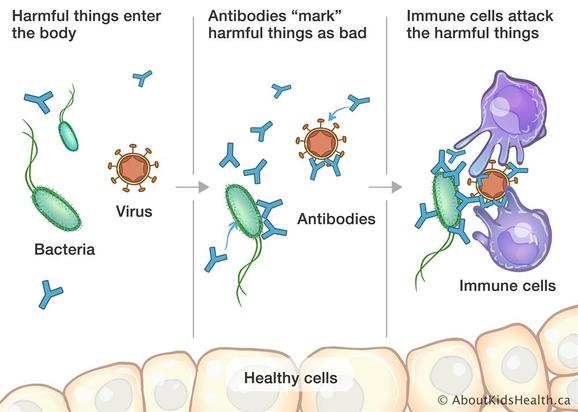
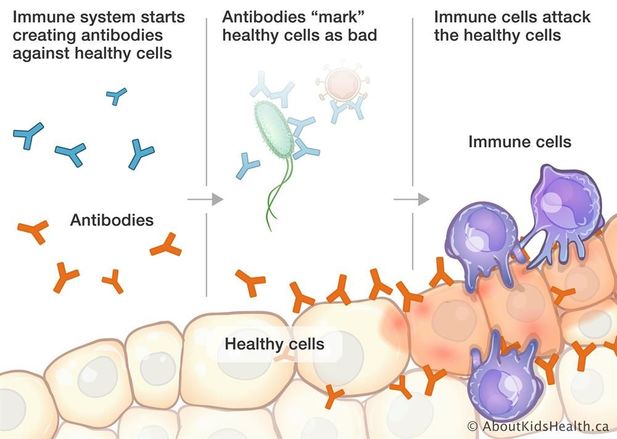
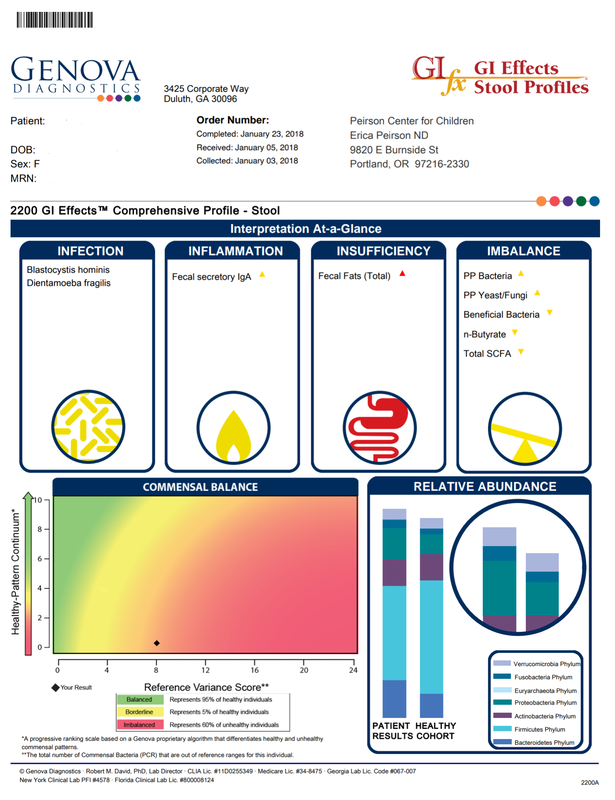
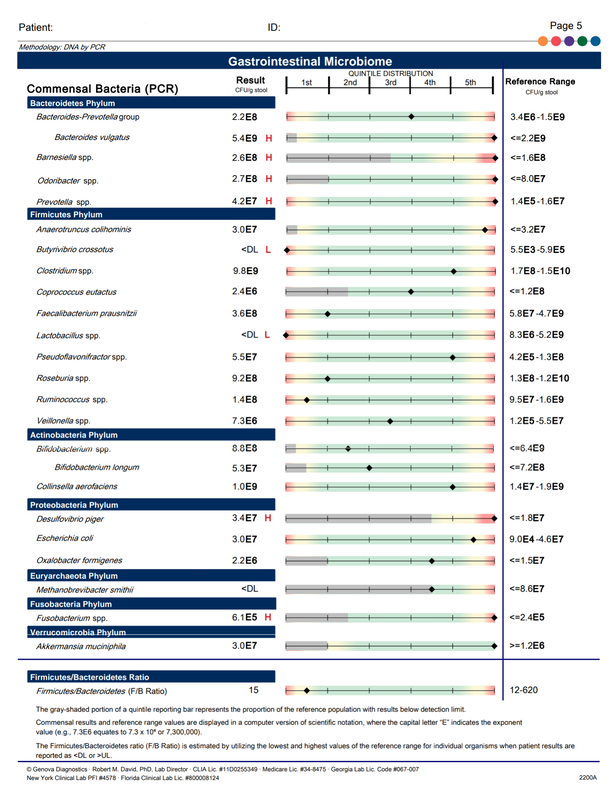
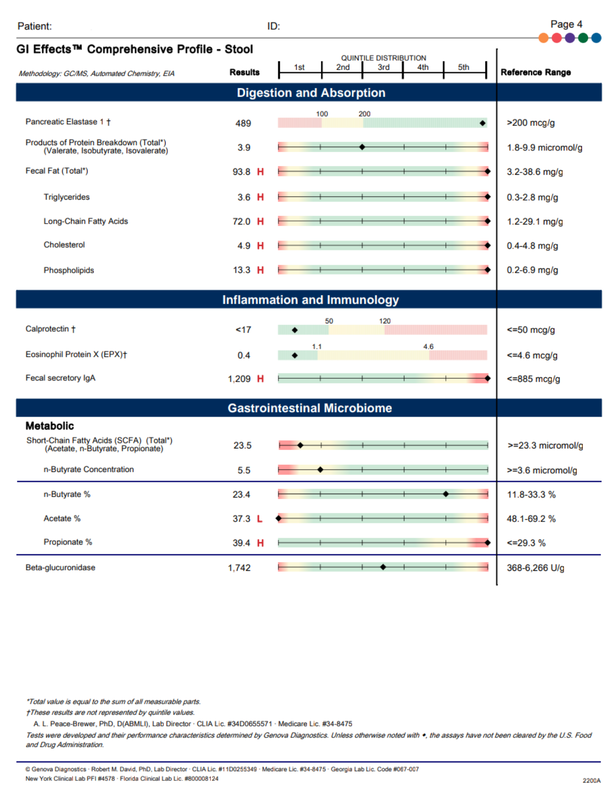
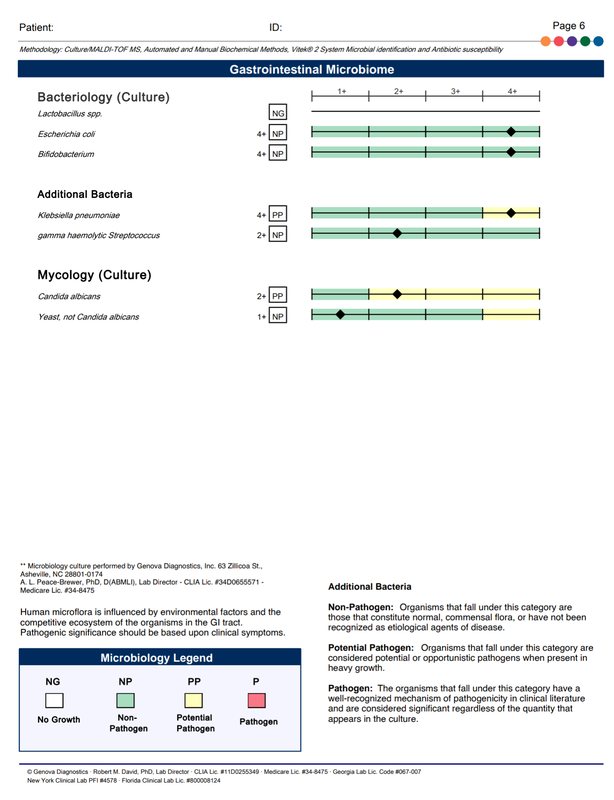
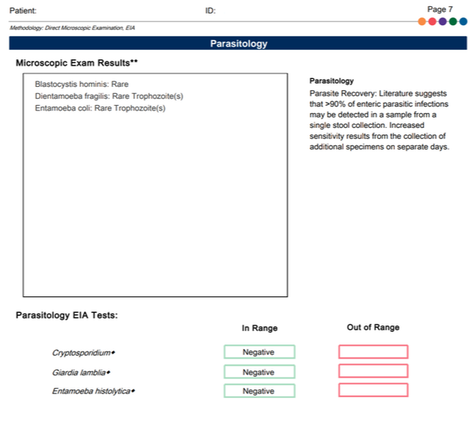
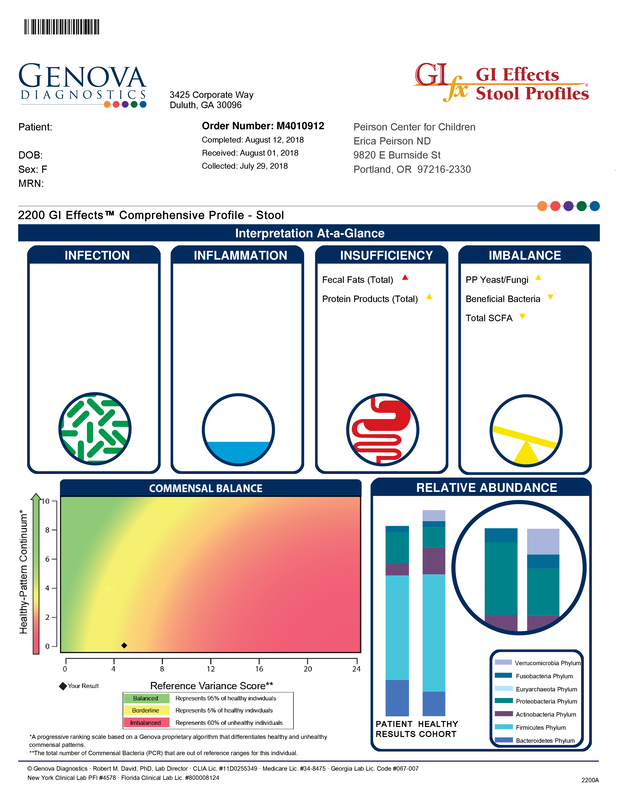
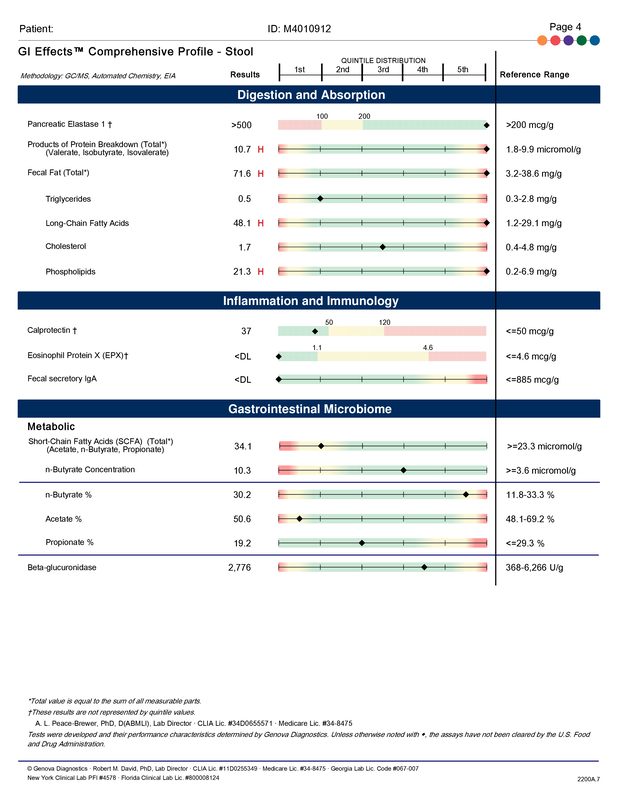
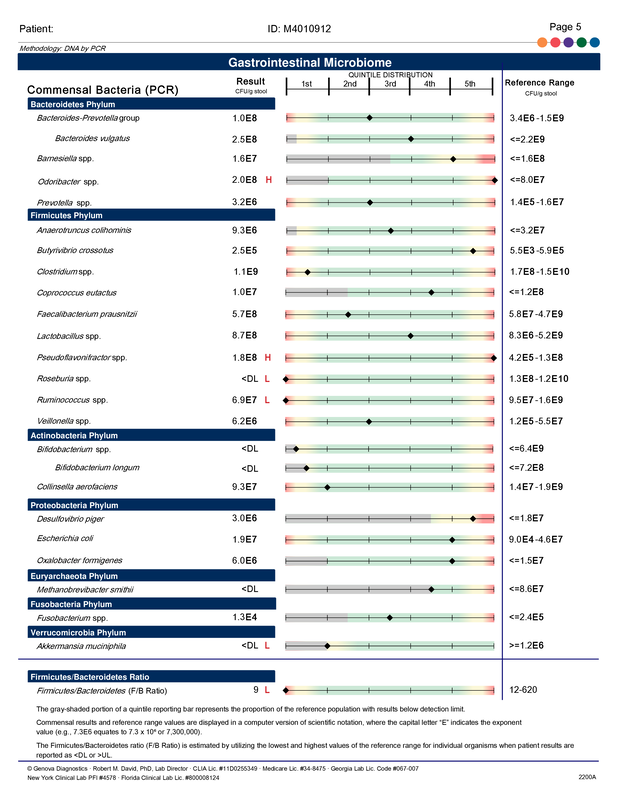
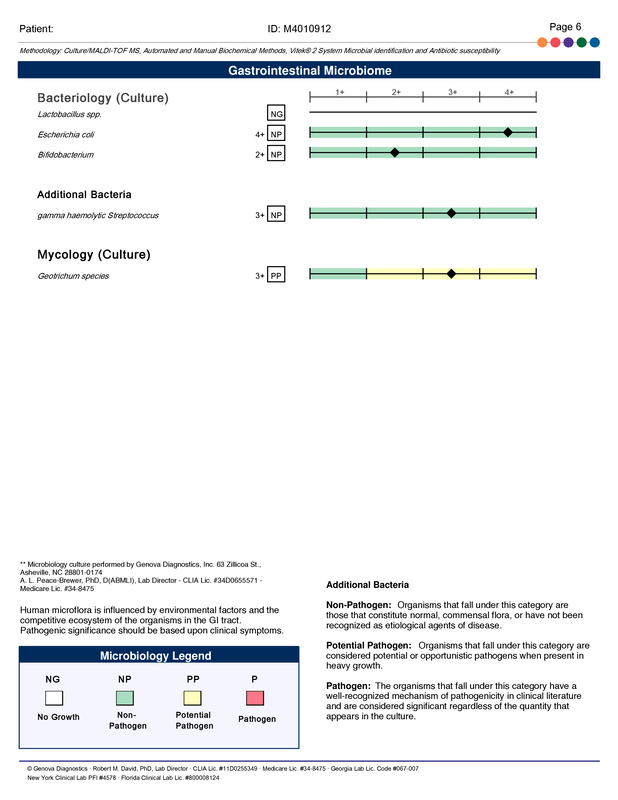
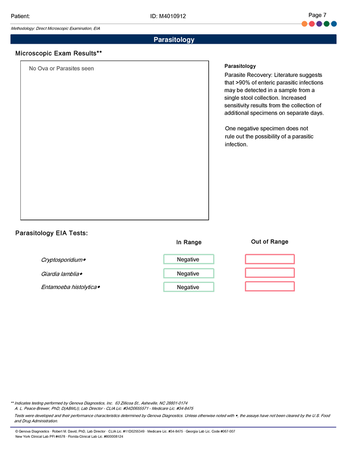
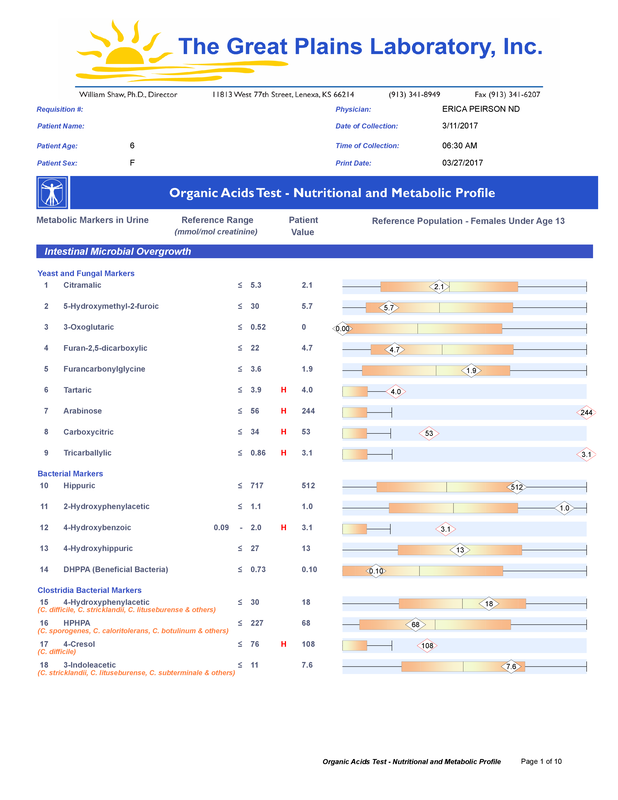
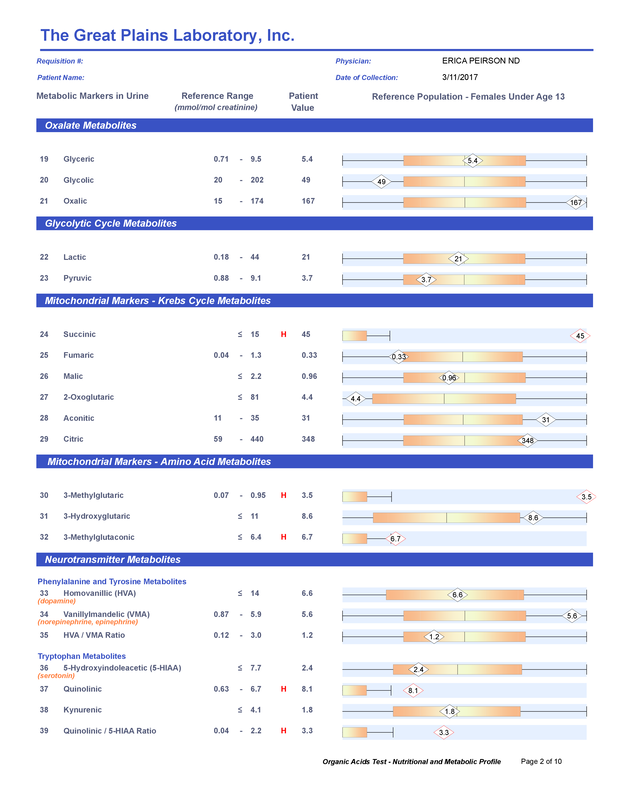
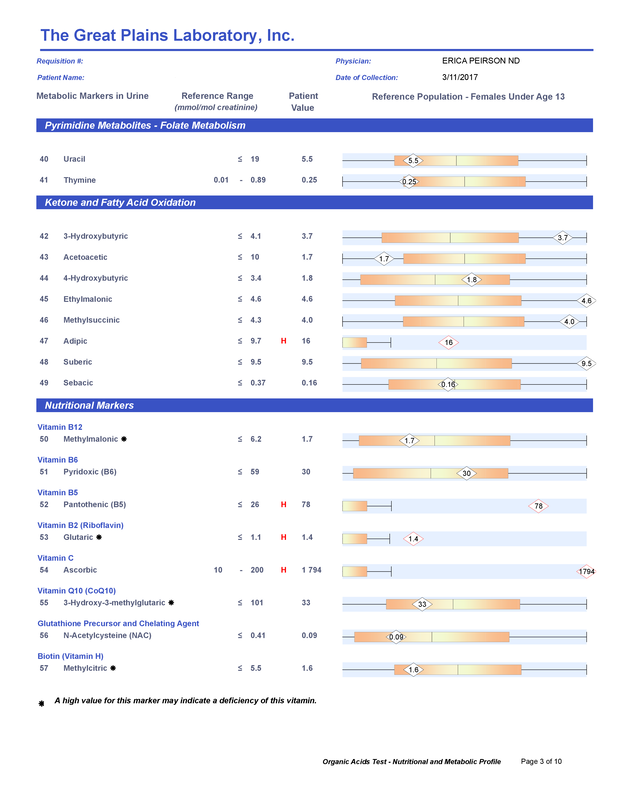
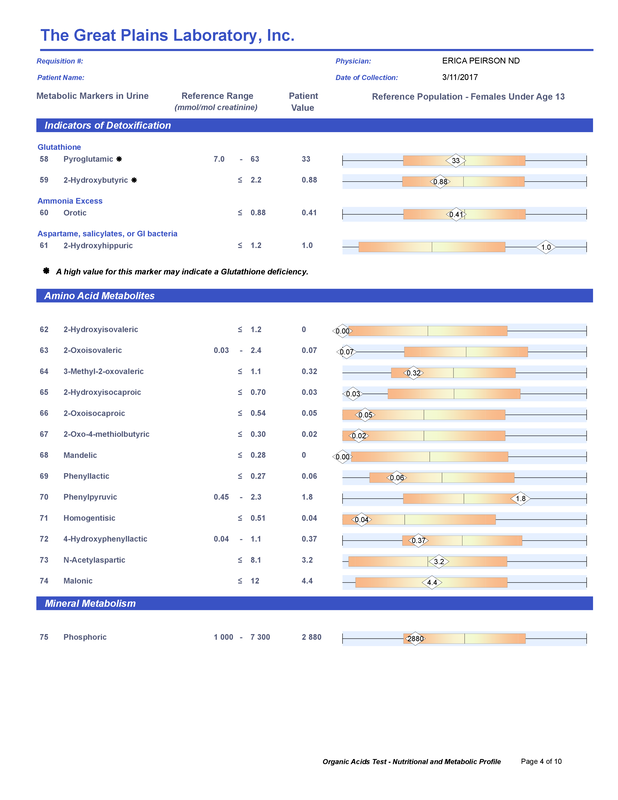

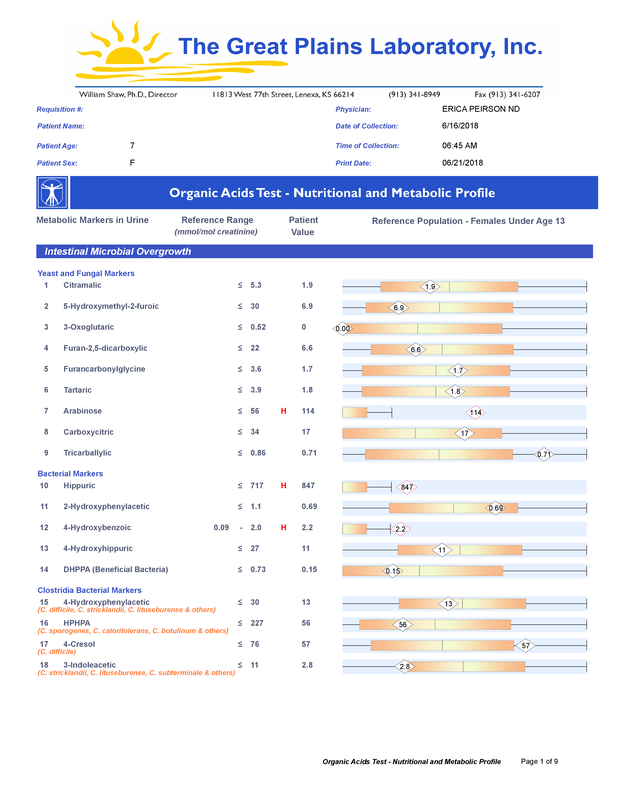
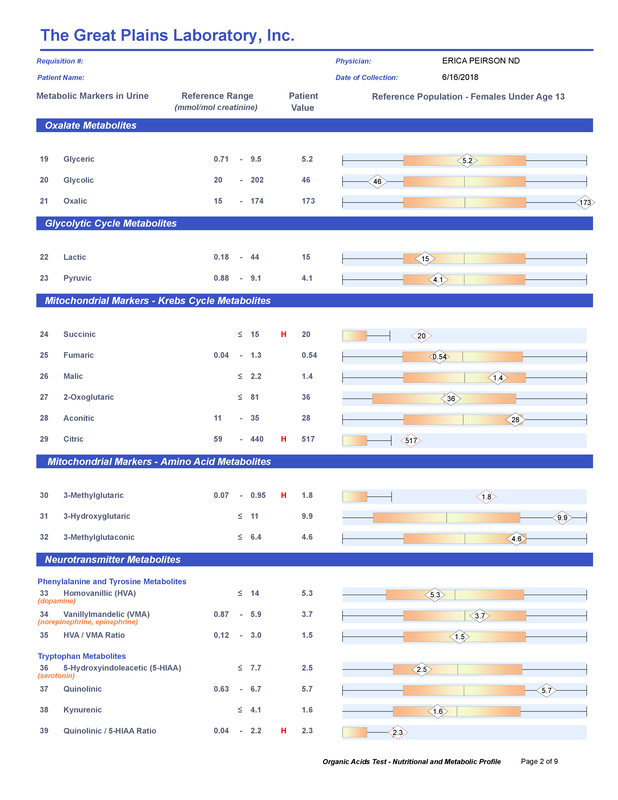
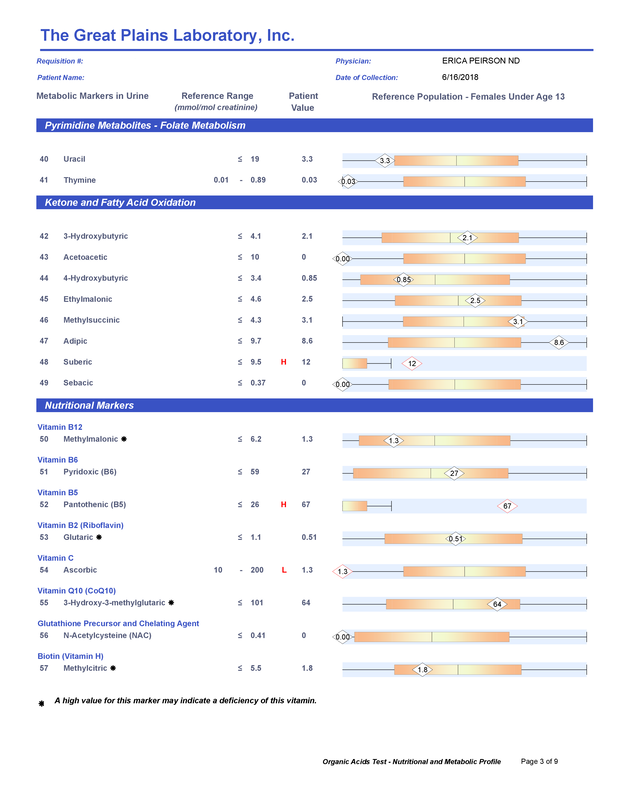
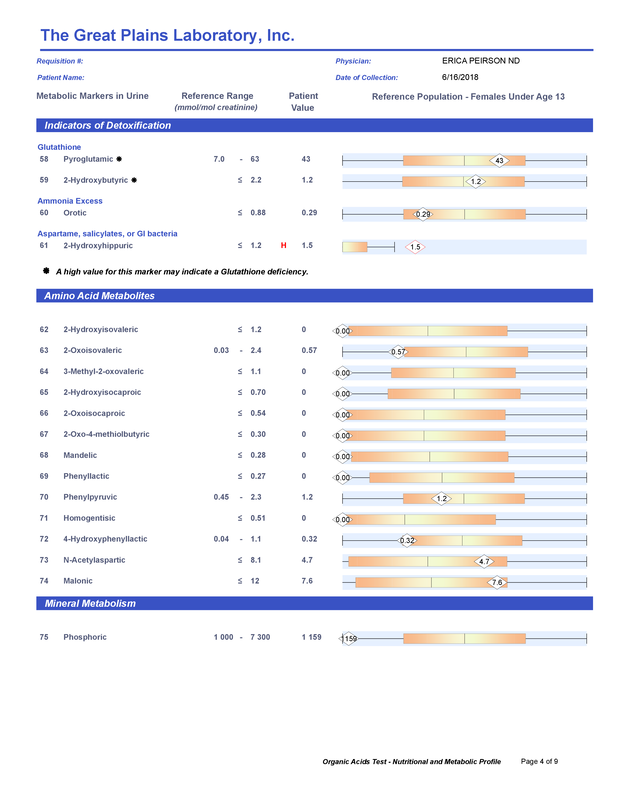


 RSS Feed
RSS Feed